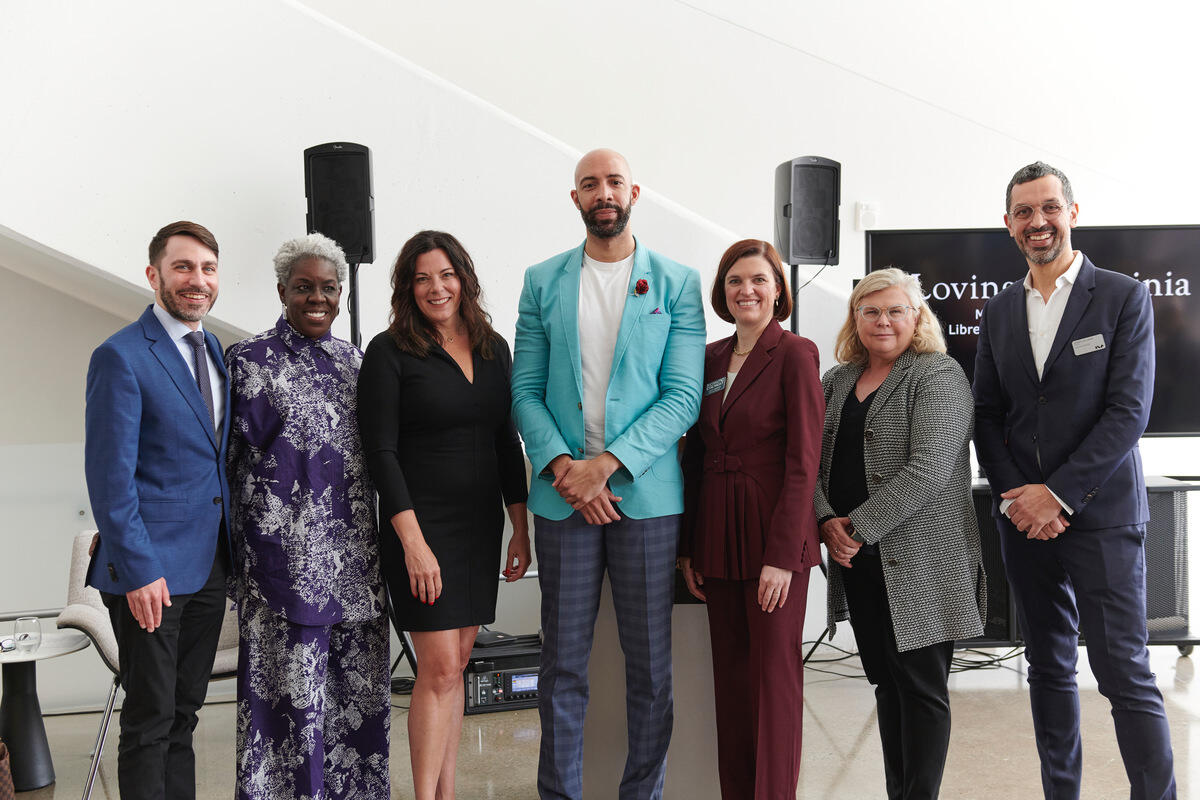
May 18, 2022
ICA at VCU partners with Virginia Opera and Richmond Symphony for ‘Loving v. Virginia’ opera
Share this story
The Institute for Contemporary Art at Virginia Commonwealth University is partnering with the Virginia Opera and Richmond Symphony on their co-commission of “Loving v. Virginia,” an operatic retelling of the groundbreaking U.S. Supreme Court case centered around the interracial marriage of Mildred and Richard Loving.
In 1958, the Lovings were sentenced to prison for marrying each other, which was illegal in Virginia due to the Racial Integrity Act of 1924. Having appealed to the Supreme Court of Virginia, which upheld the conviction, the U.S. Supreme Court issued a unanimous decision overturning their conviction in 1967. Seen as a major victory for civil rights in the United States, Loving v. Virginia was cited as precedent in the 2015 decision Obergefell v. Hodges, which legalized same-sex marriage.
“No one can fail to be touched by the Lovings’ story and the freedoms their struggle created for us today,” said Lacey Huszcza, executive director for Richmond Symphony. “Our intention is to lift this story up as an inspiration to not just opera and classical music audiences but to anyone who cares about equality and social justice. Virginia Opera and Richmond Symphony have aligned missions in championing traditionally unheard voices, advancing local artists, putting our living art forms at the center of our communities, and we invite the public to follow our story and watch the opera develop over the next three years.”
In November, the ICA will launch a series of workshops that mark progress in the commissioning process. Over the course of the next three years, workshops will be held to review the development of the libretto, vocal writing, the orchestral score and the production design.

“We believe that by introducing more people to the creative process, we can all learn deeply and intimately why the Loving story resonates for so many of us,” said Dominic Willsdon, executive director of the ICA at VCU. “And we can understand what it takes to create, together, a major new work of art.”
Deciding how best to celebrate Virginia Opera’s 50th anniversary has been the subject of countless conversations for years, said Adam Turner, artistic director of Virginia Opera. The organization had two goals: to create a production featuring a Virginia story and a Virginia composer.
Virginia Opera and Richmond Symphony have commissioned composer Damien Geter, a Chesterfield County native, and librettist Jessica Murphy Moo to create the opera, which will premiere in venues across Virginia in 2025.
“What an honor and responsibility it is to be part of a team telling their story,” Moo said of the Lovings. “Think for a moment about what they achieved. They were only two people and yet they stood up to legalized racism and enacted lasting change. Their story is an inspiration. … The vision they were working toward — equality, home, love — these subjects are part of opera’s vast terrain. I know that composer Damien Geter’s music will make us all feel — in new ways — the weight and importance of the Lovings’ contribution to racial justice in America.”
Subscribe to VCU News
Subscribe to VCU News at newsletter.vcu.edu and receive a selection of stories, videos, photos, news clips and event listings in your inbox.



